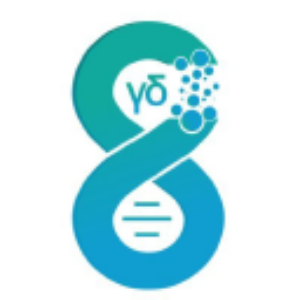IN8bio Presents Preclinical Data Highlighting Potential of INB-619 T Cell Engager (TCE) for Autoimmune Disease at ASGCT 2025
Rhea-AI Summary
IN8bio (INAB) presented new preclinical data for INB-619, their gamma-delta T cell engager (TCE) therapy, at the ASGCT 2025 Annual Meeting. INB-619 demonstrated complete elimination of disease-causing B cells in blood samples from Systemic Lupus Erythematosus patients. The therapy successfully targets CD19+ B cells while expanding both Vδ1+ and Vδ2+ gamma-delta T cells.
Key advantages of INB-619 include its ability to deplete harmful IgG1 and IgM antibodies and achieve B cell elimination without triggering severe inflammatory responses like cytokine release syndrome (CRS). Unlike traditional CD3-based TCEs, the platform shows potential for safer and more precise immunotherapy for autoimmune diseases.
The company is exploring partnerships and additional indications where gamma-delta T cell biology and B cell targeting intersect.Positive
- Successful elimination of disease-causing B cells in lupus patient samples
- Expands both Vδ1+ and Vδ2+ gamma-delta T cell levels, addressing low T cell levels in chronic disease patients
- Demonstrated safer profile with minimal inflammatory cytokine release compared to traditional TCEs
- Platform shows potential for multiple autoimmune and cancer indications
Negative
- Still in preclinical stage, requiring extensive clinical trials before potential approval
- No human trial data available yet to confirm safety and efficacy claims
News Market Reaction
On the day this news was published, INAB declined 8.31%, reflecting a notable negative market reaction.
Data tracked by StockTitan Argus on the day of publication.
- Powerful B cell Targeting: INB-619 precisely targets and eliminates B cells from lupus patient samples, including harmful IgG1 and IgM antibodies, demonstrating potential as a treatment for autoimmune diseases
- Innovative Next Generation TCE Platform: INB-619 gamma-delta (γδ) TCE platform not only depletes its target CD19+ B cells, but also significantly expands and activates both key types of γδ T cells (Vδ1+ and Vδ2+), overcoming one of the critical challenges in patients with chronic disease and dysfunctional immune systems, low γδ T cell levels
- Broad Therapeutic Potential and Potential for Safer Treatments: The data suggest INB-619 can uniquely deliver deep immune clearance without triggering the inflammatory cytokines linked to severe side effects, such as cytokine release syndrome (CRS)
NEW YORK, May 14, 2025 (GLOBE NEWSWIRE) -- IN8bio, Inc. (Nasdaq: INAB), a clinical-stage biopharmaceutical company developing innovative gamma-delta (γδ) T cell therapies for cancer and autoimmune diseases, announced new preclinical data from its INB-619 program at the 2025 American Society of Gene & Cell Therapy (ASGCT) Annual Meeting. The data shows that INB-619, a CD-19 targeted γδ TCE, successfully eliminated disease-causing B cells in blood samples from patients with active Systemic Lupus Erythematosus (SLE, or Lupus).
These findings highlight the potential of INB-619 as a novel treatment option for autoimmune diseases, where harmful B cells secrete antibodies that drive inflammation and tissue damage. Unlike traditional TCEs that target CD3 and can often trigger severe side effects, INB-619 harnesses the unique properties of γδ T cells to selectively clear B cells while minimizing inflammatory responses.
William Ho, Chief Executive Officer of IN8bio, commented, “Our findings show that INB-619 not only eliminates pathogenic B cells, but also expands γδ T cell levels, which are often reduced in patients with chronic disease. This represents a fundamentally different approach to immune modulation – one that could potentially lead to safer, more effective treatments for autoimmune diseases and beyond.”
Highlights from the Preclinical Data:
- INB-619 demonstrated complete, targeted depletion of B cells in lupus patient-derived samples.
- IN8bio’s γδ TCE successfully expands both Vδ1+ and Vδ2+ subtypes of γδ T cells, which are critical for targeting both circulating and tissue-resident B cells to potentially achieve deeper B cell depletion.
- Unlike conventional CD3-based TCEs, INB-619 did not trigger significant release of inflammatory cytokines such as IL-6, which are commonly associated with serious toxicities, including CRS.
- The study reinforces the potential of γδ T cell engagers as a safer, more precise immunotherapy platform for autoimmune diseases.
With these encouraging results, IN8bio continues to explore potential partnerships and additional autoimmune and cancer indications where γδ T cell biology and B cell targeting intersect.
About IN8bio
IN8bio is a clinical-stage biopharmaceutical company developing γδ T cell-based immunotherapies for cancer and autoimmune diseases. Gamma-delta T cells are a specialized population of T cells that possess unique properties, including the ability to differentiate between healthy and diseased tissue. The company's lead program, INB-100, is focused on acute myeloid leukemia evaluating haplo-matched allogeneic γδ T cells given to patients following a hematopoietic stem cell transplant. The company is also evaluating autologous DeltEx DRI γδ T cells, in combination with standard of care, for glioblastoma, and advancing novel γδ T cell engagers for potential oncology and autoimmune indications. For more information about IN8bio, visit www.IN8bio.com.
FORWARD LOOKING STATEMENTS
This press release may contain forward-looking statements made pursuant to the safe harbor provisions of the Private Securities Litigation Reform Act of 1995. These statements may be identified by words such as “aims,” “anticipates,” “believes,” “could,” “estimates,” “expects,” “forecasts,” “goal,” “intends,” “may,” “plans,” “possible,” “potential,” “seeks,” “will” and variations of these words or similar expressions that are intended to identify forward-looking statements, although not all forward-looking statements contain these words. Forward-looking statements in this press release include, but are not limited to, statements regarding: the ability of the INB-600 platform to offer a scalable, flexible, more precise and more powerful alternative to conventional CD3-based approaches and have applications in autoimmune diseases as well as cancer; IN8bio’s plans to expand its pipeline beyond genetically engineered and drug-resistant cellular therapy and explore various disease indications and any opportunities for partnership with the INB-600 platform; and other statements that are not historical fact. IN8bio may not actually achieve the plans, intentions or expectations disclosed in these forward-looking statements, and you should not place undue reliance on these forward-looking statements. Actual results or events could differ materially from the plans, intentions and expectations disclosed in these forward-looking statements as a result of various factors, including: risks to site initiation, clinical trial commencement, patient enrollment and follow-up, as well as IN8bio’s ability to meet anticipated deadlines and milestones; uncertainties inherent in the initiation and completion of preclinical studies and clinical trials and clinical development of IN8bio’s product candidates; the risk that IN8bio may be unable to raise additional capital and could be forced to delay, further reduce or to explore other strategic options for certain of its development programs, or even terminate its operations; IN8bio’s ability to continue to operate as a going concern; the risk that IN8bio may not realize the intended benefits of its γδ-TCE platform or DeltEx platform; the availability and timing of results from preclinical studies and clinical trials; whether the outcomes of preclinical studies will be predictive of clinical trial results; whether initial or interim results from a clinical trial will be predictive of the final results of the trial or the results of future trials; the risk that trials and studies may be delayed and may not have satisfactory outcomes; potential adverse effects arising from the testing or use of IN8bio’s product candidates; the uncertainty of regulatory approvals to conduct trials or to market products; IN8bio’s reliance on third parties, including licensors and clinical research organizations; and other important factors, any of which could cause our actual results to differ from those contained in the forward-looking statements, which are described in greater detail in the section entitled “Risk Factors” in IN8bio’s Quarterly Report on Form 10-Q filed with the Securities and Exchange Commission (SEC) on May 7, 2025, as well as in other filings IN8bio may make with the SEC in the future. Any forward-looking statements contained in this press release speak only as of the date hereof, and IN8bio expressly disclaims any obligation to update any forward-looking statements contained herein, whether because of any new information, future events, changed circumstances or otherwise, except as otherwise required by law.
Contacts:
IN8bio, Inc.
Patrick McCall
646.933.5603
pfmccall@IN8bio.com
Media Contact:
Kimberly Ha
KKH Advisors
917.291.5744
kimberly.ha@kkhadvisors.com








